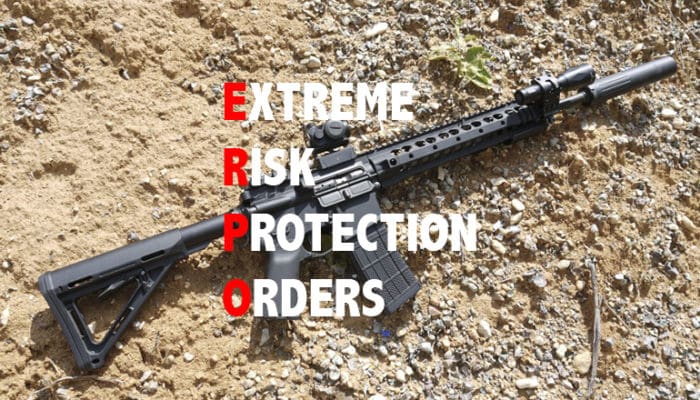By Arthur Z Przebinda, MD and Robert B. Young, MD
In the wake of the Parkland shooting we’ve seen a push to find solutions that would keep firearms out of the hands of dangerous people who might commit atrocities.
The majority of the mass killers in recent times appear to have been mentally ill or deeply disturbed. Because mental illnesses are so varied, the mere presence of one does not indicate any risk of violence. Approximately 25% of our population experiences some mental illness at any given time.
As part of a constellation of indicators, the presence of a major mental illness (like major depression, delusions, or psychosis) can contribute to risk, along with (even more) the presence of active substance or alcohol abuse, along with threats made to targets or to acquaintances and a prior history of abusive or violent behavior. When such indicators occur, we must say something and that must be acted upon.
To address this, several states have passed “Gun Violence Restraining Order” or “Extreme Risk Protection Order” legislation aimed at interdicting potentially harmful individuals before they cause harm. We’ve discussed these a number of times on DRGO.
A 2004 study by the U.S. Secret Service and U.S. Department of Education about school shootings indicates that 81% of the killers studies gave indication of their intent to at least one person and 59% signaled their intent to more than one. It would seem, then, that GVROs or ERPOs could prevent a large percentage of the recent mass murders.
However, as they are currently implemented, these laws come with major pitfalls and potential for serious abuse. They violate the principles of liberty and establish a dangerous “guilty until proven innocent” standard. GVROs and ERPOs passed to date violate multiple Constitutional protections beyond the Second Amendment. These include the rights to equal treatment and against unreasonable search and seizure (4th amendment), the rights of the accused (6th), and the right to due process (5th and 14th).
All existing legislation and all future state or federal legislation that follows this framework must meet the following criteria:
- GVRO or ERPO protocols must include due process, a pillar on which our legal system is built. Even gun owners are entitled to the presumption of innocence before assuming guilt.
- Protocols that establish for exclusively ex parte hearings and have no avenue for appeal are unacceptable and are an affront to the principles of liberty. While some circumstances are urgent, the accused person must have the right to appear and to a defense before they are deprived of their fundamental and constitutionally protected rights.
- Legislation must provide for real and substantial consequences for false accusations or will be fertile ground for abuse. A balance must be struck to encourage reporting of legitimate threats and for punishment for deliberately malicious, false accusation.
- Any GVRO or ERPO system must establish a protocol for expeditious and inexpensive restoration of Second Amendment rights if the accusation proves to be unfounded or when the person is deemed no longer a threat. Evaluation for resolution of the order must be available whenever requested, not at arbitrary times (often up to a year).
- Provisions must be made for the expeditious return of the accused person’s firearms once the order is lifted and the accused person’s rights are restored.
- Provisions must be made for the transfer of firearms to a designated friend or family member who is not a prohibited person if the accused person so chooses.
- Many people own firearms that are collector items or family heirlooms. There is no reason these should be destroyed or held in storage indefinitely when they can be legally passed on to heirs.
- When no suitable recipient can be identified and the person accused is not likely to have their rights restored, the firearms should be sold at fair market value and the proceeds should be returned to the accused.
- Those charged with seizing property must be required to store it safely.
- The seized firearms should not be cluttering evidence rooms interminably, used as range toys by law enforcement, or be destroyed as an exercise in virtue signaling.
- When major mental illness or addiction is implicated, treatment must be provided.
No tragedy warrants the abandonment of the founding principles of liberty and legal principles stemming from those values.
When the interests of an individual and the rights of the collective come into conflict, the interests of the individual must take priority. This does not mean that society should let obvious risks have full access to firearms. It means we respect individual rights. It means we protect the innocent while taking pains to follow due process for the accused.
This post was originally published at drgo.us and is reprinted here with permission.
